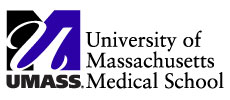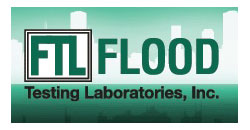ADMET’s Core Values
Why do customers come to ADMET to solve their problems and improve their material testing performance? Customers like NASA, GE, Bridgestone, Exova, Sandia National Labs, John Deere, Dupont, Harvard Medical School, MIT, Incline Therapeutics, Dolco, Boston Scientific, Otterbox, and other substantial government agencies have all turned to ADMET for material testing solutions.
Every ADMET system is built to be predictably easy to use.

Riddell tests its materials and components rigorously before they are certified to be used in the company’s products. Some of the challenges that Riddell faces include measuring the tensile strength of materials and conducting compression and cyclic tests on finished components that go into football, baseball and lacrosse helmets. These tests must be conducted to key standards set out by the National Operating Committee on Standards for Athletic Equipment (NOCSAE).
Riddell chose ADMET’s eXpert 2611 Materials Testing System with MTEST Quattro software to solve these challenges. The client, Riddell’s Director of Quality Jim Tansey, made the decision to buy the eXpert 2611 based on its ease of use, size and price.
Because Riddell’s old system was based on analog technology, the improvement with the new ADMET solution was dramatic. Now, the new digital system collects, stores and analyzes test data and enables Riddell to easily compare results to specifications and past tests. In addition, because of ADMET’s MTESTWindows package, Riddell can now view multiple test results in the same report, adding a new dimension to their test analysis. As Riddell’s Director of Quality Jim Tansey explained, “We instantly see the comparison — Here’s the new product — Here’s what we’ve specified — We can show somebody the graph without talking numbers. A picture’s worth a thousand words.”
Diagnosis is a key word at ADMET. Our sales professionals and engineers are trained to diagnose requirements, not guess!

Nerites’ researches believe they can overcome the biomedical concerns associated with animal-derived and human-derived tissue adhesives and sealants by utilizing synthetic molecules. While these molecules answer concerns related to toxicology and viral transmission, they must still be tested for their mechanical properties. One of Nerties’ senior scientists, Jeffrey Dalsin, Ph.D., contacted ADMET seeking a solution.
ADMET engineers recommended their eXpert 5602 tabeltop testing machine equipped with an eP2 Digital Controller. From the beginning, ADMET worked with Dr. Dalsin to arrive at a solution tailored to his needs. He says, “I contacted ADMET and explained our needs and the force ranges in which we would be working and the fact that we wanted to have a certain amount of computerized control. I also explained that we wanted to test underwater. The in-house ADMET machine makes it easier to test different formulations quickly.” Dr. Dalsin explains, “The pressure generated in the brain and spinal cord is much different than the pressure generated in, say, a blood vessel, especially the arterial system. So, we’re developing different formulations — they may be closely related — for applications where different forces are involved.”
It’s not about being cheap! It’s about offering the best value in terms of functionality and performance in the industry.

One specific project needed a testing machine capable of determining the load sharing between bones and implants during both tension and compression.
The Project Team chose an ADMET eXpert 2611 Universal Testing Machine to meet the project’s challenges. In the words of the client, “We were delighted with the ADMET relationship from a cost basis, ease-of-use, and ongoing support. It does what we need it to do.”
Our focus is not on Purchase Orders but on improving our customer’s performance.

The company wanted to bring its material testing in-house to improve quality control and reduce testing time. By diagnosing the key success criteria of the customer ,ADMET engineers were able to offer a brand new ADMET machine, an eXpress servohydraulic dual-column test frame equipped with the MTESTQuattro materials testing system. This machine would be utilized in both R&D and production testing.
One key benefit of ADMET’s system was its ability to capture testing data and produce sophisticated reports. In the case of BCI, tests results are printed and filed as a backup for the certification that is sent to customers. A separate report is generated for customers that require raw data. Now that BCI conducts its own testing, the company has plans to consolidate the data from multiple tests into spreadsheets in order to do statistical analyses of tensile strength results on alloys over time. Since the machine uses standard fixture pin mounts, virtually any fixture can be mounted. As the client noted: “We see a lot of possibilities.” BCI has already run some push-out tests on pressed fittings and brushings that are installed in castings. Other useful applications are planned for the future.
Our objective is to deliver consistent accuracy enabling customers to conduct comprehensive, repeatable tests to ASTM or ISO standards.

The solution needed to improve efficiency and test accuracy. The results have been very positive for FTL. The electronics in their testing machines are new and reliable. Test times have been reduced from 45 minutes to 13 minutes. All of the Young’s Modulus calculations are completed during the test. ADMET’s digital controller allows FTL to capture data, import into a spreadsheet, and create backups. The customer noted that the retrofitted machine was recognized by one of his technicians as the most accurate machine he’d ever seen.
